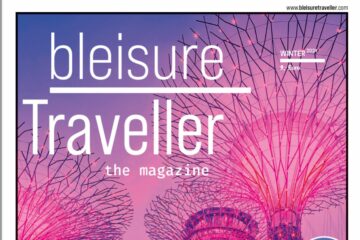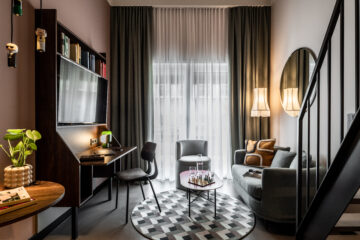“Up until now, senior managers were the primary travelers. Today’s young business travellers are more flexible and not tied down to one place yet. They have the desire to see a lot of the world and also want to discover new places on business trips. This trend will clearly increase.” Michael Schüller, Interim Managing Director Egencia Germany
Egencia has been observing and analysing current trends in leading-edge leading-edge technology for some time through numerous surveys. In spring 2018, the travel management company published the study “Egencia 2018 Bleisure Trends” with some surprising results. The Bleisure Traveller spoke to Michael Schüller, Interim Managing Director of Egencia Germany, about appropriate policies, early travel millenials and combined bookings.

Mr Schüller, what results of the study surprised you most?
That one in five business travellers choose not to extend their business trip into a private trip because they have concerns about how this might be received within the company. It is obviously this aspect that needs to be discussed and clarified, especially in the companies: What attitude do companies take with their current travel policies with regard to bleisure travel? How can an employee be sure that he or she is allowed to partake of Bleisure Travel or not?
But with the changing world of work, is bleisure really no longer a question of whether it suits a company, but how it is offered – not just formally?
Yes, this is a crucial question for many people. I think allowing bleisure trips offers a lot of scope and benefits. Especially for international business trips, for example, an earlier arrival on Saturday allows the batteries to be recharged before the actual working week begins. And this, often without higher costs for the company – on the contrary, sometimes weekend trips to business metropolises are cheaper than on Monday. Among other things, companies can have such offers clearly in focus and thus specifically promote and reward talent so that both sides benefit.
Why is bleisure already a huge trend in America and still relatively at the start in Germany and Europe?
Europe may be more conservative in comparison. In America, the opportunity for bleisure is much more natural. Also because you don’t have as many paid holidays there as in Europe. Business travellers who travel to a place of interest to them are more likely to combine this with a few private days.
In the coming years, the so-called Millenials will become more and more present on the labour market. Do you think that this generation will expect their employer to offer them the opportunity to take Bleisure?
Yes, absolutely. Looking back, for many years we have focused on the so-called frequent travellers, i.e. people who travel a lot and want to get home from their business trip as quickly as possible, especially to their families. Now, as you rightly say, the Millenials are entering the job market, and no generation has ever had the opportunity to take business trips so early in their careers. So far, it has been primarily senior managers who have traveled. Today’s young business travelers are more flexible and not yet tied down to one location. They have the desire to see a lot of the world and also want to discover new places on business trips. This trend will clearly increase, especially because business travelers are getting younger and younger.
To what extent have companies in Germany on the one hand and travel providers on the other currently recognized the potential for bleisure travel?
The potential is generally seen, but many offers still need to be developed. Our team of consultants, for example, is helping companies to make their travel policies bleisure friendly, in terms of cost management, insurance etc. But it’s also clear that there is still a lot of potential when 68% of business travellers surveyed in our study take at least one Bleisure trip a year. New framework conditions must be created for this. And this concerns a number of travel management issues: For example, how do you charge for the time of day for a bleisure trip that is extended by the weekend? When does business time end and leisure time begin? We provide advice on such questions. For example, we recommend enabling employees to book both via a single channel for a bleisure trip. This way the company has everything in view and has no problem with “wild” bookings outside the company channels. This is also important in terms of security. Among other things, our system can break down which trips took place on weekends and during the working week. This helps companies to filter out possible leisure parts of the trip. However, it should also be clearly communicated that costs such as accommodation and other expenses are not reimbursed for the private travel portion. Thank you very much for the informative conversation, Mr. Schüller.
Sylvie Konzack …

was surprised how much, according to the study, workers still fear that their boss might criticize a private extension to a business trip. Employers who create clarity and opportunities here for themselves and, above all, for their employees, could aggressively score points at the next interview and attract the best talents.
Fotos: Konzack, Egencia




